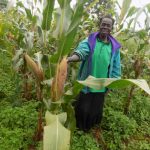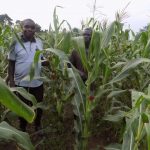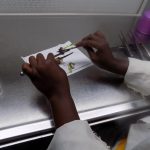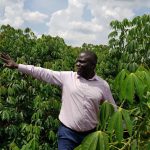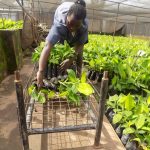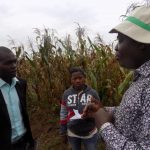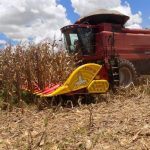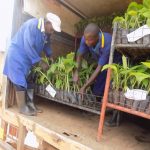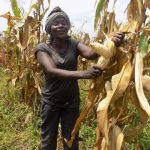Scientists take steps to improve seed of African foods.
2 min readScientists take steps to improve seed of African foods.
By Christopher Bendana
Kampala
A dozen scientists from several African countries are meeting at the Munyonyo Commonwealth Resort Hotel in Kampala to forge a way on how to improve the quality of seed on some of the African indigenous food crops
Meeting under the auspices of the Accelerated Varietal improvement and Seed Delivery of Legumes and Cereals in Africa (AVISA): Healthier and Prosperous Africa program plant breeders, social economists, and gender experts have since Monday been discussing ways on how better to develop and deliver quality seed to the farmer.
They say to achieve the greatest success it will involve sharing best practices in breeding and technologies to generate a continuous stream of improved crop varieties among the participating countries.
The program led International Crops Research Institute for the Semi-Arid Tropics (ICRISAT) by was launched in February is run in Uganda, Tanzania, Ethiopia, Burkina Faso, Ghana, and Mali.
It is focusing on five crops: they include groundnuts, common bean, cowpea, sorghum, and pearl millet.
The crops have been affected by pests and diseases as the effect of climate change bites. Climate change has altered seasons affecting the output of these crops which are mainly grown by small scale farmers pushing many close to poverty and hunger
In a press release, AVISA said it would work to address many of these challenges.
“AVISA aims to reduce losses from evolving climate patterns, and pest and diseases,” the statement said.
“The program will enable public-private partnerships for enhanced seed delivery, coordinate seed delivery partnerships and facilitate smallholder farmers’ access to high-quality seed. These will enable smallholders to achieve greater yields, higher incomes, and improved livelihoods. The project is also committed to gender equity, ensuring women farmers have equal access to improved seed and exposing women farmers and other value chain actors to the new varieties.”
Clare Mukankusi, country representative, International Centre for Tropical Agriculture (CIAT) one of the partner organization based at the National Agricultural Research Laboratories, Kawanda said there was need to sensitize stakeholders involved in the seed value chain from the research institute to farmer on why they have to keep away from fake seed.
She explained that her experience of some in the seed value chain sneaking in fake seed.
She then called for labeling of certified seed packets so that farmers can trace the seed multiplier if the seed does not perform as per instructions.
Patrick Okori a Uganda scientist based at ICRISAT in Malawi said there is a need for more government support to research and development to reduce the dependence of foreign donor money.
The 2003 Maputo Declaration called for African countries to about 10% of their national budgets to agriculture. Uganda’s agriculture is only allocated 3% of the country’s budget that goes much in salary payment. For R&D it is less than 1%.



